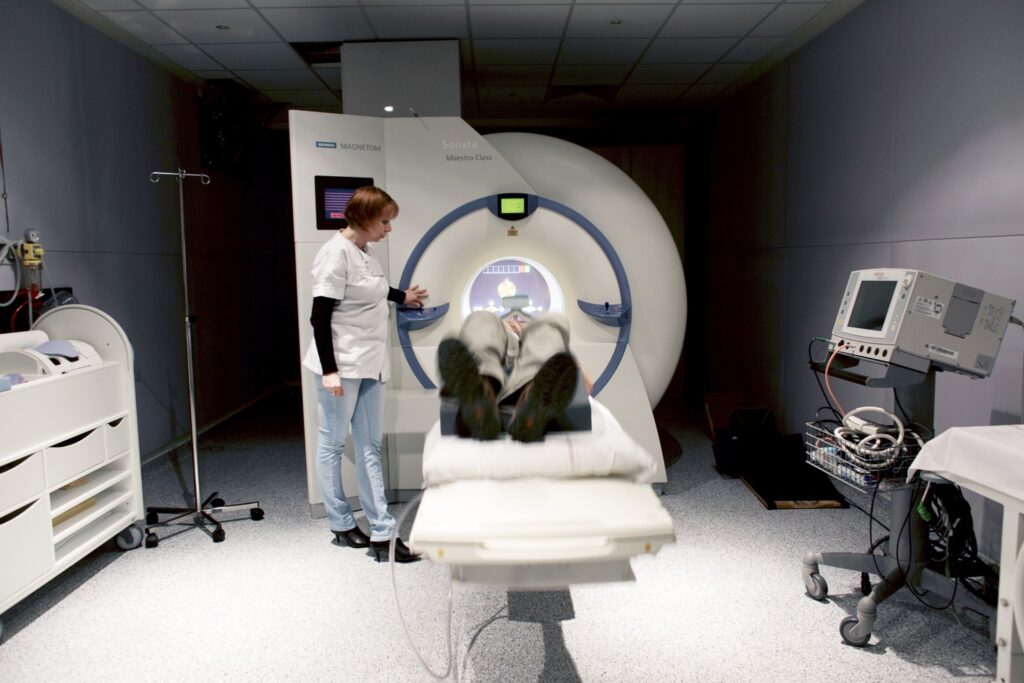Some people going to a Belgian hospital for a scan or MRI often had to pay a supplement, but from today (5 December) hospitals will no longer be able to charge extra fees for this service.
In the past, almost two in three people getting MRI scans in hospitals and more than one in three getting CT scans had to pay a supplement on top of the radiologist's official fee. For MRI scans, patients were charged a supplement of over €30, whereas the supplement averaged €20 for CT scans – fees which studies showed were particularly unaffordable for people with lower incomes. There were also great discrepancies between hospitals regarding these surcharges.
To guarantee affordable and accessible care, Health Minister Frank Vandenbroucke proposed a bill that medical imaging must always be invoiced according to official rates. It stipulates that, from Tuesday 5 December, hospitals can no longer charge fee supplements for MRI or CT scans during normal working hours or for urgent scans.
"For a CT scan or MRI, you have to go to the hospital. Patients have no choice. That's precisely why there should be as few financial barriers as possible, in every hospital, so that everyone has access to the right care and the best care when it's needed," the Minister said in a statement. "And I think it's the job of the public authorities to make sure that happens."
Some exceptions
In June this year, Vandenbroucke argued that patients should be able to go to any hospital for a CT or MRI scan at the standard rate and that the proliferation of these supplements was "unacceptable".
Later in the month, he announced that, by the end of the year, Belgian hospitals should offer heavy-duty medical imaging at the standard rates as the Federal Government approved a draft law which would make these rates compulsory. This law has now been passed.
This applies to urgent scans (when it concerns a lump or a cyst, for example) and for scans carried out during office hours. The same applies when a patient goes to A&E and a scan is performed immediately.
Surcharges can be increased for non-urgent scans outside office hours, on public holidays or at weekends. However, the patient must be informed of the financial consequences in advance and they must always give explicit, written consent.
Related News
- Belgians pay 26,5% more in non-reimbursed medical care than EU average
- Belgium's battle with antibiotics: Overuse fuels fears of resistance
If a surcharge is still billed improperly, patients are advised to contact the hospital's billing department to have the bill corrected. If it is not corrected, the patient can contact their health insurance fund to have the bill checked. The mutual health insurance fund can then contact the hospital concerned to have the bill corrected, and it can provide legal assistance if the hospital still refuses.
Vandenbroucke did stress that there is excessive use of CT scans compared to MRI in Belgium. "Excessive radiation is not good for your health. Compared with the rest of Europe, in Belgium we find that many patients undergo CT scans even when they don't really need them," he noted.
The Minister has therefore put proposed to increase the number of MRI machines in Belgium to support a shift towards more frequent use of MRI scanners.

